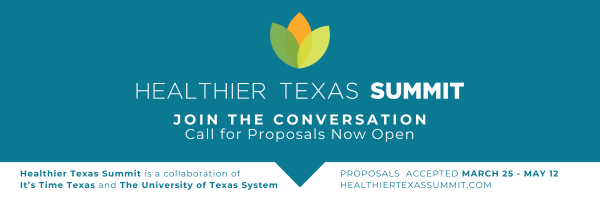The Blog
Planning an Effective Workshop
Planning an Effective Workshop: Balancing Structure and Collaboration
Welcome to the world of workshop planning! As advocates for public health, we understand the importance of sharing knowledge and fostering collaboration through effective workshops. Whether you’re an experienced facilitator or new to workshop planning, learning the art of workshop design is essential for creating meaningful and impactful experiences. This blog post will explore key strategies to maximize engagement and learning at the Healthier Texas Summit this October.
Understanding the Workshop Format
Workshops come in various formats and styles, each with its unique characteristics and advantages. Understanding the nuances of workshop formats is essential for tailoring your workshop to meet the needs and preferences of your audience. For in-depth insights into different workshop formats, check out “Designing Effective Workshops” by Donald J. Treffinger et al. [1].
Defining Clear Objectives and Outcomes
The next step to building the foundation of any successful workshop lies in defining clear objectives and outcomes. Take the time to identify the goals you hope to achieve and the outcomes you aim to deliver. For practical tips on setting clear workshop objectives, refer to “The Art of Facilitation: The Essentials for Leading Great Meetings and Creating Group Synergy” by Dale Hunter et al. [2].
Creating a Flexible Storyboard for Organic Collaboration
Then, you want to plan and allow for flexibility, which is key to fostering organic collaboration and adapting to the group’s dynamics. Consider creating a flexible storyboard that outlines the key components of the workshop while allowing room for spontaneous discussions and participant-driven activities. Learn more about fostering collaboration in workshops from “Facilitator’s Guide to Participatory Decision-Making” by Sam Kaner et al. [3].
Preparing Engaging Activities and Materials
Equally important is preparing Engaging activities and materials. These are essential for keeping participants actively involved and enhancing their learning experience. Explore innovative tools and materials to captivate your audience and spark meaningful dialogue. For inspiration, browse “The Big Book of Team Building Games: Trust-Building Activities, Team Spirit Exercises, and Other Fun Things to Do” by John W. Newstrom and Edward E. Scannell [4].
Managing Time Effectively to Stay on Track
Next, you want to manage your time effectively. Time management is crucial for covering all planned activities within the allocated timeframe. Create a detailed agenda and be prepared to adapt if certain activities take longer than anticipated. For time management strategies tailored to workshop facilitation, check out “Facilitating with Ease!: Core Skills for Facilitators, Team Leaders, and Members, Managers, Consultants, and Trainers” by Ingrid Bens [5].
Encouraging Authentic Conversation and Interaction
Create a supportive environment where participants can comfortably share their thoughts and ideas. Encourage open dialogue, active listening, and respectful communication to foster meaningful collaboration. Learn more about fostering authentic conversation from Elena Aguilar’s “The Art of Coaching: Effective Strategies for School Transformation” [6].
Facilitating Group Discussions and Brainstorming Sessions
Additionally, group discussions and brainstorming sessions are powerful tools for generating ideas and solving complex problems collaboratively. As a facilitator, you guide these discussions and ensure that diverse viewpoints are heard and respected. For facilitation techniques and strategies, refer to “The Facilitator’s Book of Questions: Tools for Looking Together at Student and Teacher Work” by David Allen and Tina Blythe [7].
Adapting to Unexpected Changes or Delays
Flexibility and adaptability are essential for navigating unexpected changes or delays during workshops. Remain calm, assess the situation, and be prepared to adjust your plans accordingly while maintaining the integrity and objectives of the workshop. For tips on handling unexpected challenges, explore “The Skilled Facilitator: A Comprehensive Resource for Consultants, Facilitators, Managers, Trainers, and Coaches” by Roger M. Schwarz [8].
Seeking Feedback for Continuous Improvement
Finally, feedback is a valuable insight for continuous improvement. Invite participants to share their feedback and reflections on the workshop experience. Use this feedback to identify areas of strength and opportunities for growth, informing your future workshop planning efforts. For guidance on soliciting and utilizing feedback effectively, refer to “Feedback Toolkit: 16 Tools for Better Communication in the Workplace” by Karen Phelan [9].
Workshop planning requires a delicate balance between structure and collaboration. You can create engaging and impactful workshops that resonate with participants across diverse sectors by understanding workshop formats, defining clear objectives, fostering organic collaboration, and embracing flexibility. We invite workshop presenters to harness the power of effective workshop planning to drive positive change and advance public health in Texas and beyond. Make your proposal submission by May 12th!
We look forward to receiving your proposals and collaborating with you to create an enriching and impactful summit experience for all attendees. Together, let’s build a healthier Texas for all!
References:
- [1] Treffinger, D. J., Isaksen, S. G., & Dorval, K. B. (2006). Designing Effective Workshops.
- [2] Hunter, D., Bailey, A., & Taylor, B. (2007). The Art of Facilitation: The Essentials for Leading Great Meetings and Creating Group Synergy.
- [3] Kaner, S., Lind, L., Toldi, C., Fisk, S., & Berger, D. (2007). Facilitator’s Guide to Participatory Decision-Making.
- [4] Newstrom, J. W., & Scannell, E. E. (2010). The Big Book of Team Building Games: Trust-Building Activities, Team Spirit Exercises, and Other Fun Things to Do.
- [5] Bens, I. (2005). Facilitating with Ease!: Core Skills for Facilitators, Team Leaders and Members, Managers, Consultants, and Trainers.
- [6] Aguilar, E. (2013). The Art of Coaching: Effective Strategies for School Transformation.
- [7] Allen, D., & Blythe, T. (2004). The Facilitator’s Book of Questions: Tools for Looking Together at Student and Teacher Work.
- [8] Schwarz, R. M. (2002). The Skilled Facilitator: A Comprehensive Resource for Consultants, Facilitators, Managers, Trainers, and Coaches.
- [9] Phelan, K. (2000). Feedback Toolkit: 16 Tools for Better Communication in the Workplace.
